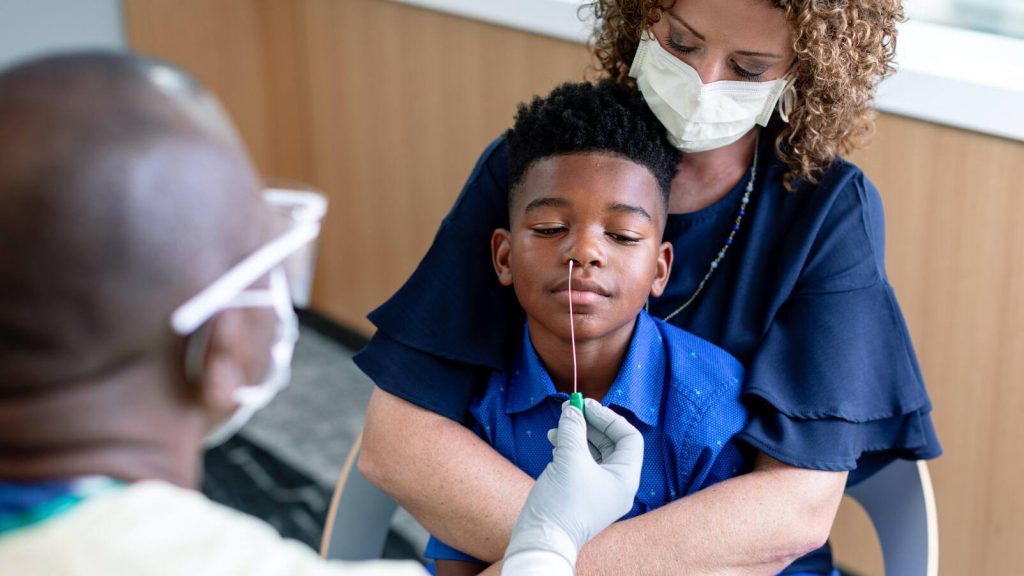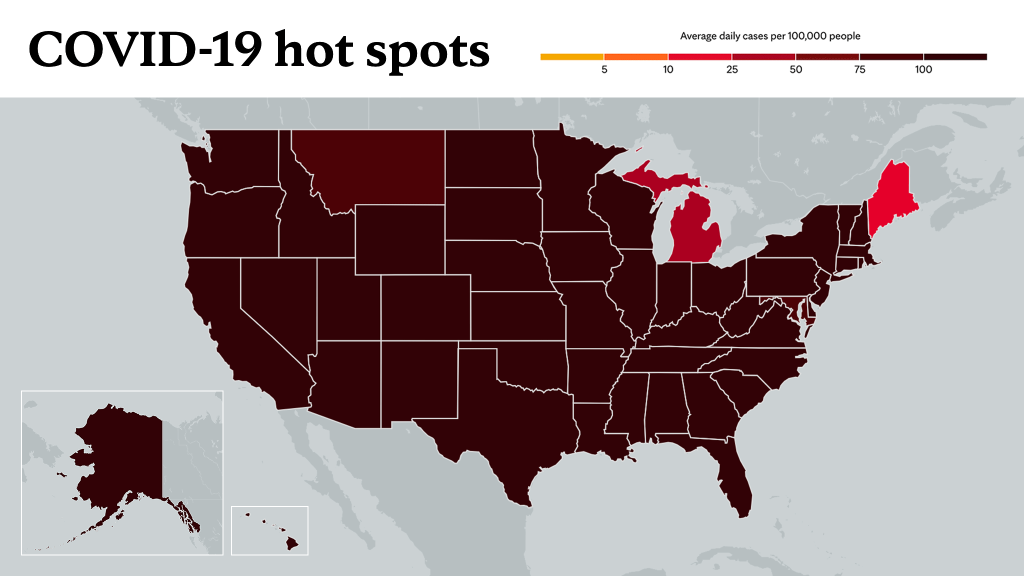-
How the COVID-19 pandemic is affecting kids

Throughout the COVID-19 pandemic, a common misconception is that kids aren't affected much by COVID-19, and if they were to get sick, their symptoms would be mild. However, the pandemic is affecting children in many ways, physically and mentally.
Dr. Nusheen Ameenuddin, a Mayo Clinic pediatrician, and Janice Schreier, a clinical therapist at Mayo Clinic Health System in La Crosse, Wisconsin, have seen firsthand the toll the pandemic has taken on children.
Journalists: Broadcast-quality soundbites are available in the downloads at the end of the post. Please courtesy: Mayo Clinic News Network.
Kids are getting sick
One of the most common questions parents ask Dr. Ameenuddin is whether children really need to get vaccinated for COVID-19.
"What I've stressed to them is that we've actually gotten a lot of good information over the past couple of years (about COVID-19's effects on children), especially the last year, that the vaccines are incredibly effective in preventing very severe side effects," says Dr. Ameenuddin.
One particular rare and serious side effect of COVID-19 is multisystem inflammatory syndrome in children, or MIS-C. Dr. Ameenuddin says among those who have gotten multisystem inflammatory syndrome in children, almost all were unvaccinated.
"Vaccination, even if a child still gets sick, makes them much less likely to be sick enough to be hospitalized or die, which, unfortunately, has been happening."
Mental health issues on the rise
Even before the pandemic, mental health challenges facing kids were a big concern. Schreier says COVID-19 has only exacerbated the situation.
"We've seen an increase in depression and anxiety, and eating disorders have increased like nothing I've seen," says Schreier.
"Just in 2021, we saw greater than 30% increase in mental health presentations to emergency rooms. And those kids that are coming in are sicker than they used to be before the pandemic. They are having higher levels of suicidal ideation, showing more aggression with self-harm, higher rates of substance abuse and more instances of eating disorder."
Schreier says the pillars of good mental health, such as, spending time with friends, physical activity, good sleep hygiene, and maintaining a routine, have been compromised during the pandemic.
Adverse side effects
Some of the side effects of COVID-19 for children are ones that could affect them for years to come.
"I think one thing that we haven't heard enough about is that over 140,000 children in the United States have lost at least one parent to COVID-19. Even if people are thinking this is something that is more of an adult disease, and it's not affecting children, many children have been orphaned," says Dr. Ameenuddin. "Not having a parent, for the rest of your life is a really significant adverse event. That's why it is very much a disease that's affecting children in multiple different ways."
____________________________________________
For the safety of its patients, staff and visitors, Mayo Clinic has strict masking policies in place. Anyone shown without a mask was either recorded prior to COVID-19 or recorded in a nonpatient care area where social distancing and other safety protocols were followed.
Information in this post was accurate at the time of its posting. Due to the fluid nature of the COVID-19 pandemic, scientific understanding, along with guidelines and recommendations, may have changed since the original publication date.
For more information and all your COVID-19 coverage, go to the Mayo Clinic News Network and mayoclinic.org.
Learn more about tracking COVID-19 and COVID-19 trends.








